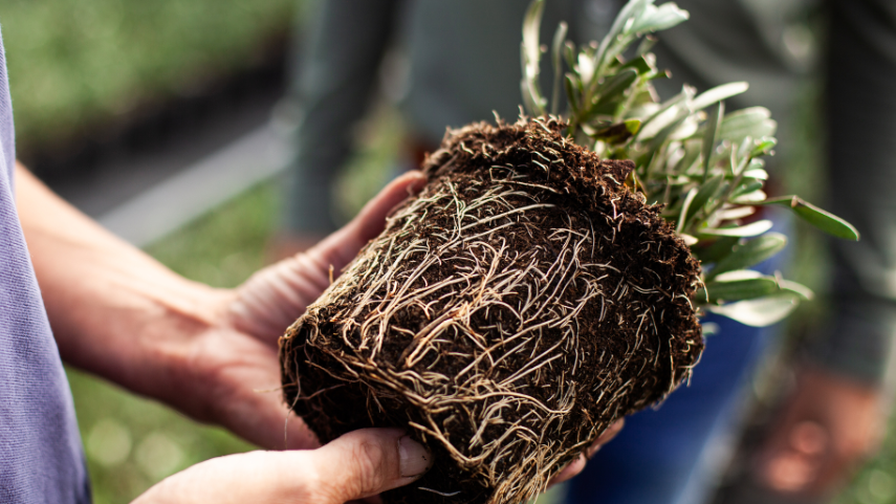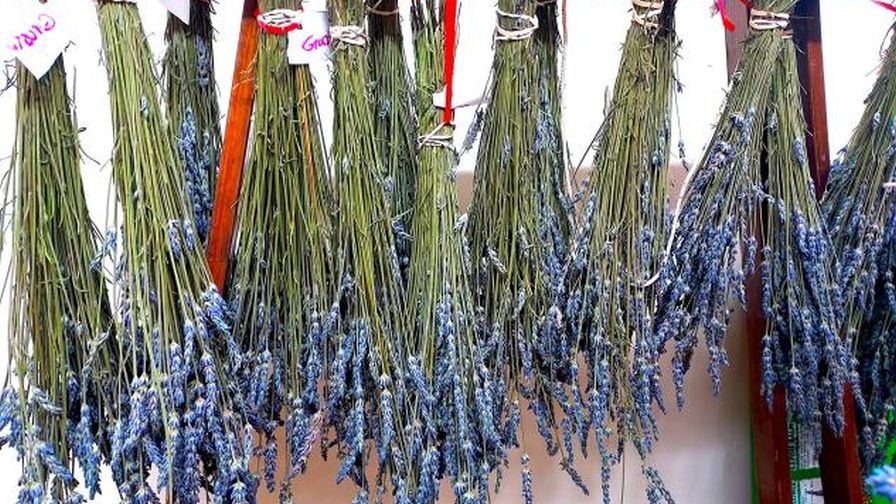The Bright Side Of Contract Growing

Plants Unlimited President Nirmal Shah knows what it’s like to devote a majority of a greenhouse production facility to a single customer and lose all of that business in an instant.
The lost business was Frank’s Nursery & Crafts, which at one time was a retail chain with a couple hundred stores on the East Coast. In May 2002, though, Frank’s filed for Chapter 11 bankruptcy protection, leaving the operation previously known as Van Boven’s Greenhouses with 10-plus acres of greenhouses to fill in Kalamazoo, Mich.
“We were in kind of a panic situation at the end of the spring,” Shah says. “[Former owner] Larry [Boven] did not get paid for some amount of his product–not like all of it–but he did not receive a good amount. Going forward, we had to ask what are we going to do to replace that business? Out of the 13 acres, 10 1/2 or 11 were for Frank’s.”
It was around the time Van Boven’s lost the Frank’s business that Shah approached Boven about pursuing new customers. Shah had been with Van Boven’s as a grower for 2 1/2 years, but he joined Boven later that year on a mission to land enough new business to fill their empty greenhouses.
While Shah landed business with Menards, Boven successfully approached Masterpiece Flower Company about growing crops. Between the two new customers, Van Boven’s was able to fully use its greenhouses the following spring. Shah’s ability to land Menards was also a turning point in his relationship with Boven, who sold the business to Shah in 2006.
Menards is no longer a customer of Shah’s today, but Masterpiece Flower Company is. So are six other growers and brokers whom Plants Unlimited serves as an operation that’s entirely devoted to contract growing.
In Pursuit Of Opportunities
Because Plants Unlimited developed a good relationship with Masterpiece, Shah began to explore other contract growing options. One year, the operation grew a crop for Green Circle Growers. Another time, Plants Unlimited took an order from Zylstra Greenhouses, which is actually located across the street.
In Plants Unlimited’s first years contract growing, Shah took relatively small, one-time jobs. Still, those jobs trained him to work with other growers. They also provided Shah a glimpse at a new business model.
“We realized this could work if done in bigger numbers,” he says. “It could work if done correctly and planned out.”
When Shah took over at Plants Unlimited in 2006, he was mostly selling to Masterpiece. But he made phone calls, went to trade shows and expanded his network of growers. The extra effort ultimately led to six other customers. Shah currently serves as a contract grower for Battlefield Farms, Bert R. Hybels, CK Greenhouses, Color Point, Elzinga & Hoeksema Greenhouses, and Neal Mast & Son Greenhouses.
To Shah, the contract growing approach is the most appropriate one for his business. The thought of selling direct does cross his mind at times, but he realizes his operation is not entirely equipped to handle direct shipments to many of the retailers his customers serve.
“We are not required to have elaborate inventory tracking software, trucking, shipping management–which we will need if we work directly with Home Depot, Lowe’s or any big store,” he says. “Pay-by-scan comes into the picture, and we would need a lot of people and systems we do not have in place right now.”
Curbing Concerns
Shah also believes serving retailers directly could rile up other growers in his area.
“Between those two reasons, we decided to stay away from direct shipping,” he says. “If I get myself backed into a corner, I’ll try everything I need to. But right now, when there are other options, I like to have the relationship where I can sell to the big growers who can let me fill up my space. Basically everybody’s happy that way.
“So far, it has been successful for us and I intend to keep it that way. I’m not trying to explore into other things right now.”
Shah, like many contract growers, has one main concern about contract growing: What if your customers decide they don’t need you? There are a variety of reasons why growers wouldn’t contract others to produce crops for them. Perhaps the cost of fuel no longer makes long-distance business feasible. Maybe the quality of the crop the contract grower produced was below the retailer’s standard. It’s also always a possibility that the contract grower’s customers will build new greenhouses to handle production themselves.
The list of reasons goes on, but Shah argues a contract grower is likely just as concerned about losing business with other growers as other growers are concerned about losing business with retailers.
“If I were selling to Lowe’s directly, I could always have the same thought if the buyer said there’s no more for you,” he says. “What if it’s going to be your neighbor supplying me? I would assume everyone in business has the fear of losing their customer, so how is contract growing any different than selling direct?”
Shah combats his contract growing concerns by letting non-customers know he’s open to new business. Balancing the business between the seven rather than devoting an overwhelming majority to one or two customers is a strategy that helps Shah sleep at night.
“Our biggest customer went from 95 percent of our business to maybe 35 percent with Masterpiece,” Shah says. “It’s still a big number that if you were to lose that customer it would take a lot to replace it, but that number is significantly down.
Finding Balance
To Shah, there really are no set percentages that say how much of one’s total production should be committed to different customers. There is no set number of customers a grower should serve, either. In fact, in some instances, adding more customers complicates matters.
“In my case, I’m dealing with seven folks here,” Shah says. “I really enjoy working with all of them, and I would love to add two or three more to the mix. The only thing is because we grow for seven different people, everything from inventory and tag management to pot management and shipping complicates things more.
Shah estimates he grows 100 different SKUs, which is an extravagantly large number for a contract grower. Usually, contract growers prefer monocropping.
“I end up growing so many different things it makes growing challenging,” Shah says. “When you have so many different products–sizes, shapes–consistency becomes a concern. You take a step back and wonder if you need to project yourself and market more as a monocrop grower. Or, do you offer yourself and say you can do anything you want us to grow? Just give it to us.
“It is definitely a challenge but it is probably part of the reason customers keep coming back. It takes a lot of attention at the greenhouse. I want to make sure the Lowe’s grower doesn’t get a Home Depot tag or vice versa. Or the Meijer customer doesn’t get an independent garden center tag, and vice versa.”
Regular communication is a key to curbing contract growing concerns, as well. Say a customer orders 10,000 pots one spring: Shah will talk with that customer as early and as often as he can to anticipate drastic changes and keep his greenhouses full.
“There’s always the possibility that a customer who bought some product from me this year might not need as much–or might not need anything at all–the following year,” Shah says. “For example, when we sit down June or July with all seven of our customers, we will ask if we should plan on a similar approach next year. They can’t always give us a full answer, but even if there’s a slight hint that the chance is there for significant change, we like to know so during the summer and fall we can find other options to make sure our place is taken care of.”









